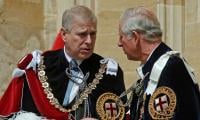Budget 2021-22
The federal budget announced by Finance Minister Shaukat Tarin at least at first glance appears rather reassuring. The Rs8,478 billion budget focuses on development and the two other ‘D’s that are part of every budget announced in Pakistan – debt servicing and defence. But, as analysts have noted, there is some sense of direction in a budget which the government has said is still being discussed with the IMF. While Budget 2021-22 has left most analysts feeling more optimistic than before, it does leave us with two key questions: will it be able to control spiralling prices? And will it be able to restore an economy that felt like it was in a downward spiral under the same government? Prime Minister Imran Khan had raised hopes by promising a budget which would leave “everyone happy,” but the background noise on the IMF negotiations means that fears remain of another round of price hikes to essential items. The picture is certainly not as rosy as Finance Minister Tarin presented, but the numbers selected to present before parliament look good: almost ten percent growth in manufacturing, agriculture showing growth and small surplus in the current account. There was little surprise then that Bilawal Bhutto wondered if this was another country’s budget.
Even if the PTI government is able to deliver on its 4.8 percent growth target, there are valid concerns over whether the economy has merely returned to the position it was before the current government took over. There are signs, though, that the government’s fourth finance minister in three years might be changing the tune a bit – with talk of ‘inclusive growth’, and going beyond ‘trickle-down’ to ‘bottom-up’ approaches of poverty reduction. This has been followed by concrete proposals, mostly in the shape of loans for small-scale business development or housing construction to the underprivileged classes. It is another matter that whether loans constitute bottom-up development or deepen poverty cycles is a question that many an economist would ask. We can however see in the budget some sense of direction. The trouble though is that the economy does continue to show weak fundamentals, with Tarin raising further alarm by claiming that Pakistan is now a food importing country. While some commentators have dismissed it as a way of providing excuses in the face of major food price inflation, this is something to be taken seriously. The budget says that it will put agricultural growth back on the top of its list of priorities but the policies outlined bring little that is new. The last government responded to agricultural decline in similar ways without much success.
That said, the decision to avoid increasing taxes on salaried people, rationalizing withholding taxes, avoiding taxation on the internet as had been proposed and the launch of multiple development projects which would give employment to the many still unemployed after the Covid-19 crisis suggests the government is at least attempting to find a way to ameliorate some of the misery of people burdened by the high prices of petrol and other daily needs. When it comes to development spending, the almost 40 percent increase in the public sector development programme (PSDP), only means that we are back to the numbers when the PTI government started. The finance minister has also said that traders would be pulled into the tax net and tougher measures taken to ensure no one remains outside it. The rationalization of taxes and the decision not to increase power rates could help avoid theft from power lines and the non-payment of taxes – though it is quite difficult to see how traders, who form an immensely powerful lobby, will be taxed successfully. Questions will be asked over how the government plans to finance the increased expenditure while continuing to reduce the fiscal deficit. Tarin has said that the almost 18 percent increase in revenue target will come from improved economic performance, as well as better mechanisms of tax collection. Of course, those currently outside the tax net should be brought into it, rather than continuing to increase indirect taxation which is inevitably passed on to the ordinary consumer. But the government’s anticipation that it can this year raise Rs5,829 billion in taxes compared to Rs4,963 in the last fiscal year, an increase of 17.4 percent, has already led to raised eyebrows, given the near-impossibility of target. Capital tax in stock markets has been reduced, which may lead to more investment within the stocks sector. One may wonder, however, whether such policies might be much more useful for productive economic sectors to show real growth. Instead, there is little promised to sectors of the economy that offer the greater levels of employment. Despite talking about manufacturing as one of its success stories, the government has presented a rather underwhelming target of increasing exports.
How the government will handle the issue of meeting the needs for development, with a focus promised in the least developed parts of the country, notably Khyber Pakhtunkhwa and Balochistan, is at this point difficult to say. We can only hope there is some success and the relief offered to people is converted into reality. But there is always the risk that this will be a mirage which will fade away as the angle changes and as we move along the road that marks FY 2021-22. One hopes, though, that the more optimistic message of the budget will stick – for the good of the people and the economy. The government has increased public sector salaries for the first time in three years, while also pushing the minimum wage up significantly. However, it is quite clear that inflation and de-growth continue to remain serious concerns, especially when the country remains susceptible to both IMF pressure and the Covid-19 pandemic (for which Rs100 billion has been allocated). There is still a long way to go before the PTI government can claim to have delivered on its economic promises. This budget could be a first step in a positive direction, as long as it is able to negotiate an independent path from the IMF and can convince people to cooperate with the government as far taxation is concerned in a country where traditionally there is low acceptance for it, coupled with low credibility as to government pledges, regardless of which party forms the government.
-
 King Charles Prepares Next Move As Andrew Shows No Remorse
King Charles Prepares Next Move As Andrew Shows No Remorse -
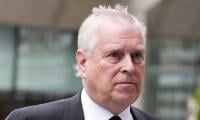 Epstein's Brother Invited To Discuss Royal Family's Future After Andrew's Arrest, On Popular Show
Epstein's Brother Invited To Discuss Royal Family's Future After Andrew's Arrest, On Popular Show -
 BAFTA Winner Robert Aramayo Defends Director's Racial Slurs Amid Tics
BAFTA Winner Robert Aramayo Defends Director's Racial Slurs Amid Tics -
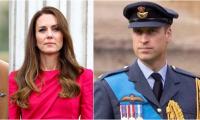 Prince William, Kate Middleton’s Troubles Take On A New Face: ‘They’re Steeling Themselves’
Prince William, Kate Middleton’s Troubles Take On A New Face: ‘They’re Steeling Themselves’ -
 'Coronation Street' Star Sally Ann Matthews Finally Reveals Why She Quit ITV Soap
'Coronation Street' Star Sally Ann Matthews Finally Reveals Why She Quit ITV Soap -
 Prince Andrew's Major Sacrifice For Princess Beatrice, Eugenie Royal Titles Revealed
Prince Andrew's Major Sacrifice For Princess Beatrice, Eugenie Royal Titles Revealed -
 ICE Agent Misfired Bullet Into Minnesota Hotel’s Guest Room
ICE Agent Misfired Bullet Into Minnesota Hotel’s Guest Room -
 Andrew Mountbatten-Windsor, Fergie Still Counting On Each Other? Deets
Andrew Mountbatten-Windsor, Fergie Still Counting On Each Other? Deets -
 Piers Morgan Reacts To Photo With Ghislaine Maxwell
Piers Morgan Reacts To Photo With Ghislaine Maxwell -
 UK Data Privacy Regulators Raises Safety Concerns, Warn Against AI-generated Images
UK Data Privacy Regulators Raises Safety Concerns, Warn Against AI-generated Images -
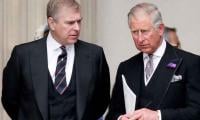 Australian PM Agrees With King Charles, Backs Removing Andrew From Line Of Succession
Australian PM Agrees With King Charles, Backs Removing Andrew From Line Of Succession -
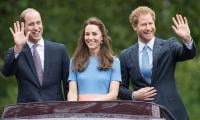 Kate Middleton, Prince William 'steeling Themselves' For Harry's Inevitable Arrival With Lilibet, Archie
Kate Middleton, Prince William 'steeling Themselves' For Harry's Inevitable Arrival With Lilibet, Archie -
 Kiefer Sutherland's Arrest Sparks Fresh Fears As Friends 'beg Him' To Get Help After Father's Death
Kiefer Sutherland's Arrest Sparks Fresh Fears As Friends 'beg Him' To Get Help After Father's Death -
 John Davidson 2026 BAFTA Backlash: Tourettes Action Charity Defends Him Over 'unintentional' Racial Slur
John Davidson 2026 BAFTA Backlash: Tourettes Action Charity Defends Him Over 'unintentional' Racial Slur -
 Kim Kardashian Obsessed TV Star 'Lip King' Breathes His Last At 32
Kim Kardashian Obsessed TV Star 'Lip King' Breathes His Last At 32 -
 Prince Harry Backtracks On Privacy Fears For Princess Lilibet: Here’s Why Public Saw Her Face Amid Andrew Drama
Prince Harry Backtracks On Privacy Fears For Princess Lilibet: Here’s Why Public Saw Her Face Amid Andrew Drama

